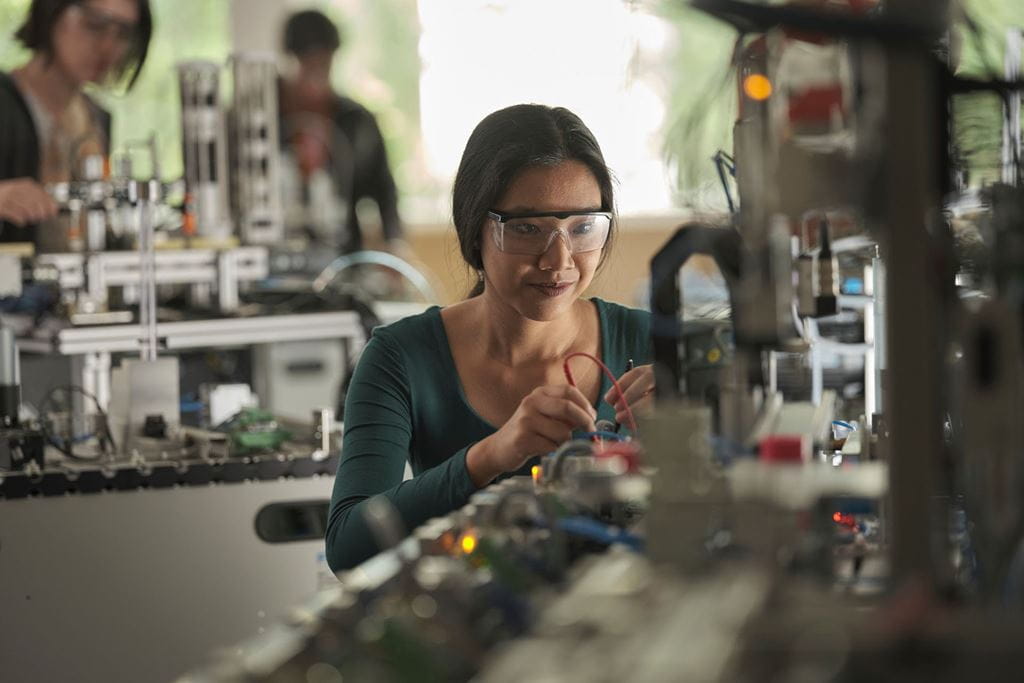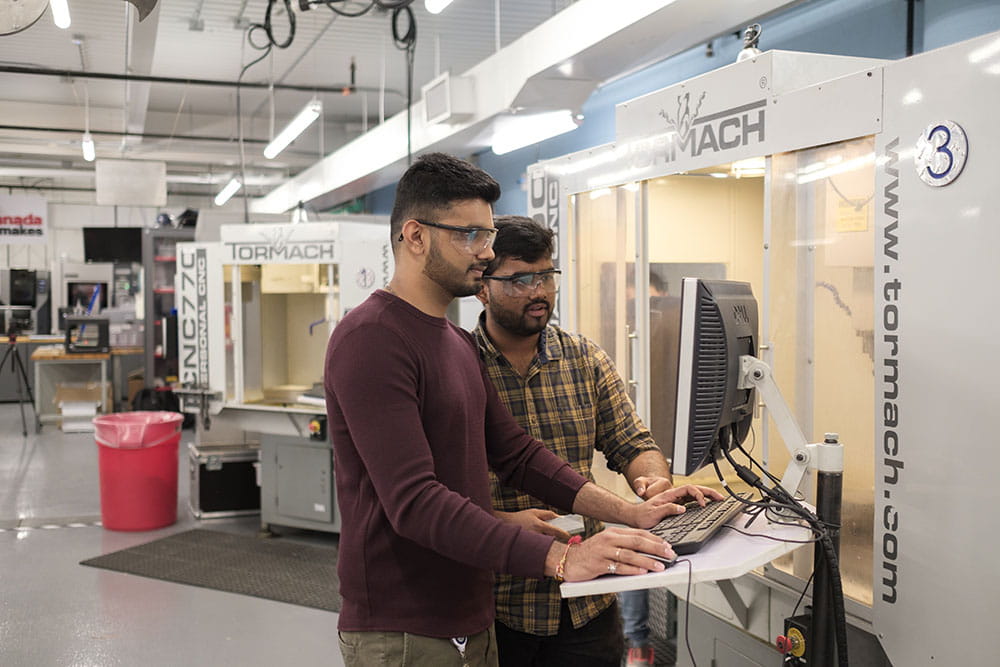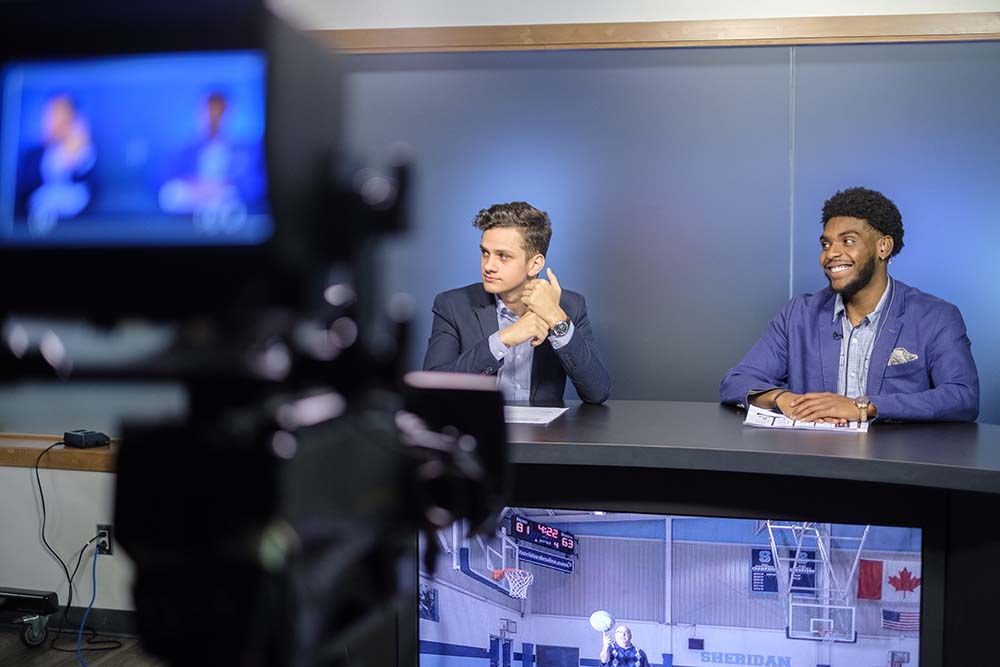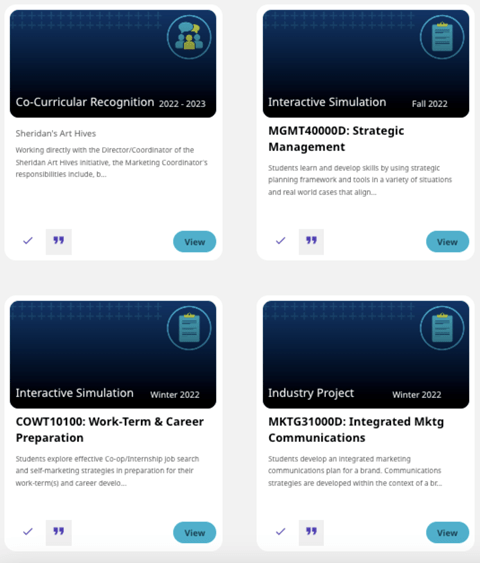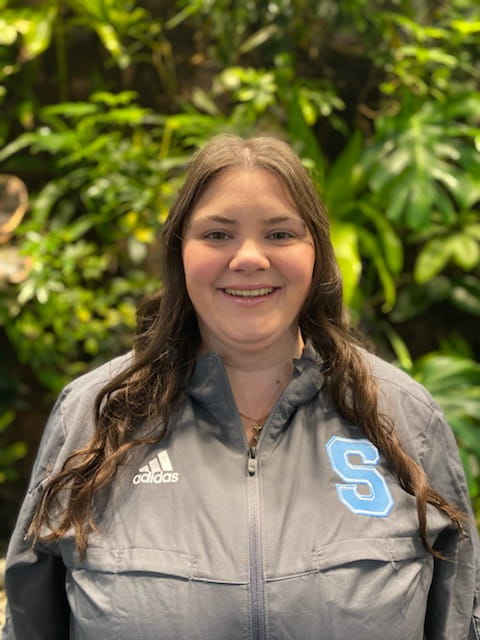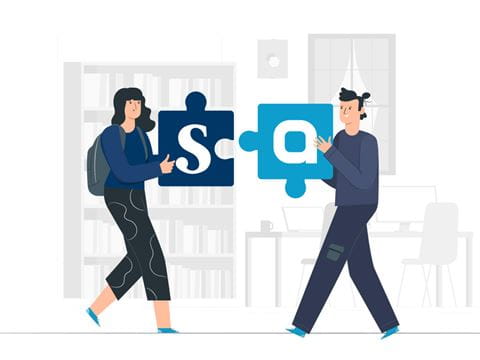“Through my program, I have completed four co-op work terms at KPMG, one of the big four global accounting firms. There, I have had the opportunity to take on progressively more responsibilities with each co-op, be exposed to so many different areas within the field of accounting and develop a wide range of new skills.”
– Akashdeep Singh, Honours Bachelor of Business Administration (Accounting), 4th year
How will experiential learning help me?
Experiential learning allows you to:
- Get hands-on experience that helps build your understanding of work expectations and enables you to stand out in a competitive job market.
- Develop leadership, technical and professional skills that employers are looking for, so that you’re ready to transition directly to the workforce once you graduate.
- Explore your interests and clarify your career goals.
- Make important networking connections to kickstart your career.
Examples of experiential learning:
- Practicing career catalysts in a laboratory or simulated workplace.
- Working in a studio to experiment, design or develop a product.
- Participating in capstone or research projects.
- Work-integrated learning (cooperative education and internship, field placement and mandatory professional practice, and apprenticeship).
- Co-Curricular Recognition (student life and leadership development programs, community engagement activities, clubs, athletics, committee participation, etc.).
Experiential learning at a glance
In the 2022–2023 academic year:
24,000+
students gained hands-on learning through experiential learning courses. *
7,000+
students gained professional experience through work-integrated learning activities.
175+
co-curricular recognition opportunities allowed students to build skills and gain experience.
* course-integrated experiential learning as defined by Sheridan College

